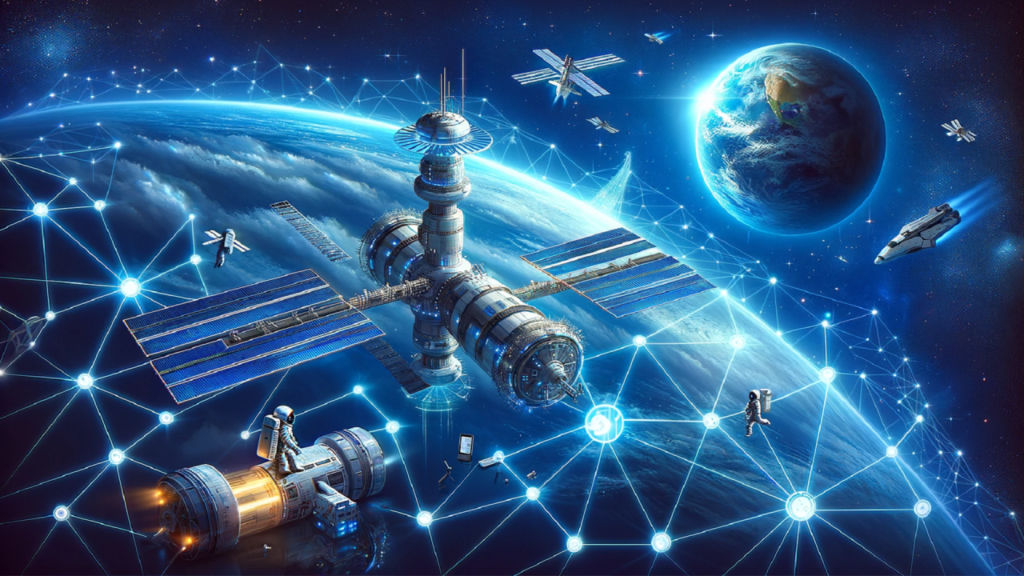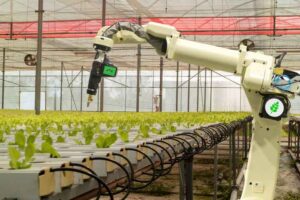AI in Space Exploration: Autonomous Decision Making

Space exploration is fraught with challenges, from vast distances and communication delays to the unpredictability of extraterrestrial environments. As humanity ventures deeper into the cosmos, artificial intelligence (AI) has become a cornerstone of enabling autonomy in decision-making, ensuring that spacecraft and rovers can function efficiently without constant human intervention.
A significant hurdle in space exploration is the time lag in communication between Earth and spacecraft. For missions to Mars, for instance, this delay can range from 4 to 24 minutes one way, making real-time human control impractical. AI addresses this by equipping spacecraft with the ability to make independent decisions in real time. Using machine learning algorithms, these systems analyze incoming data, identify anomalies, and adapt their operations to changing conditions. This capability is particularly critical for tasks like navigating treacherous terrains, avoiding obstacles, and conducting scientific experiments autonomously.
Rovers and landers, such as NASA’s Perseverance and Curiosity, exemplify the role of AI in autonomy. These robotic explorers are designed to independently traverse challenging Martian landscapes, identifying scientifically valuable sites and prioritizing tasks. AI systems onboard process visual data from cameras and sensors to map the terrain, assess hazards, and determine optimal paths. This level of autonomy not only ensures mission safety but also maximizes the scientific yield by allowing rovers to operate continuously without awaiting commands from Earth.
In addition to navigation, AI plays a vital role in managing the complex systems aboard spacecraft. Modern spacecraft are equipped with numerous sensors and subsystems that generate massive volumes of data. AI-driven diagnostics and predictive maintenance systems monitor these inputs, identifying potential issues before they escalate into critical failures. For example, NASA’s Deep Space Network uses AI algorithms to optimize communication scheduling among multiple spacecraft, ensuring efficient use of limited resources.
AI also enhances the efficiency of space missions by streamlining data analysis. With limited bandwidth for transmitting data back to Earth, spacecraft must prioritize the most valuable information. AI algorithms onboard can sift through vast datasets, identifying patterns, anomalies, and key insights, and sending only the most critical findings to mission control. This capability has been instrumental in missions like the Kepler Space Telescope, which used AI to identify thousands of potential exoplanets from its observations.
Another transformative application of AI in space exploration is in the operation of robotic arms and manipulators. On the International Space Station (ISS), for instance, AI assists astronauts in controlling robotic arms for tasks like docking spacecraft or conducting repairs. Future missions to construct lunar habitats or extract resources from asteroids will heavily rely on AI-driven robotic systems capable of assembling structures or mining autonomously.
As humanity sets its sights on interstellar exploration, AI will play an even greater role in enabling spacecraft to operate independently for extended durations. Future missions to the outer planets, moons, or even neighboring star systems will necessitate spacecraft capable of learning and adapting over time. Reinforcement learning—a subset of AI—allows systems to improve their performance by learning from past experiences. This technology will be pivotal for long-duration missions, where spacecraft must deal with unforeseen challenges and evolve their strategies dynamically.
While the benefits of AI in space exploration are profound, there are challenges to its implementation. Developing AI systems that can function reliably in the harsh conditions of space, with extreme temperatures, radiation, and limited computational power, is a significant engineering feat. Additionally, ensuring the ethical use of AI in autonomous decision-making—particularly in scenarios involving potential risks to other celestial bodies—requires careful consideration and international collaboration.
AI’s role in space exploration is revolutionizing how we explore the cosmos. By enabling autonomous decision-making, it overcomes the limitations of human intervention, paving the way for more ambitious and efficient missions. As the technology continues to evolve, AI will remain a driving force in humanity’s quest to understand and navigate the universe.
Stay ahead with ITBusinessNews – Your trusted source for Technology and Business news. Fast & Precise




